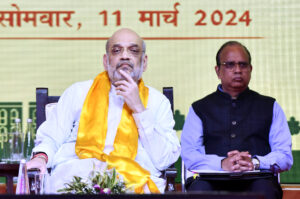Mountain of coronavirus-related waste raises alarm in Delhi
[ad_1]
Personal Protection Equipment (PPE) like body suits, face masks, hand gloves and shoe covers have played a crucial role in battling the raging coronavirus pandemic in the Capital.
But an apparent failure on the part of authorities in planning and ensuring proper, post-use disposal of these highly infectious items has triggered a parallel crisis.
Coming in bulk from hospitals labs, homes, hotels and other facilities (where thousands are in quarantine), besides crematoriums and burial grounds, bio-medical waste is piling up in the city.
A Mail Today reality check found that much of it is being dangerously dumped in landfills as incineration plants have begun to run out of capacity.
Rules say bio-medical waste should be collected in yellow bags by trained workers equipped with protective gear for safe disposal. But they are seldom followed.
An utter disregard for norms was on full display at Lodhi Crematorium where people bodies of Covid-19 patients are allowed to be cremated at its electric facility. On Monday, a heap of PPE kits along with other plastic and house-hold waste lay strewn in its parking area.
Most people who came to cremate their relatives were in PPE kits. But they just threw them around while leaving. These kits, as per experts, could potentially turn into virus spreading vessels if not discarded properly. In a day, the crematorium handles 8 to 10 Covid-19 bodies.
Rampal who works there said, “We tell people not to throw PPE kits in the open but they don’t listen. We should get separate bins for their safe disposal.” Rampal blamed the South Delhi Municipal Corporation (SDMC) for the crisis. “We complained many times but they say they don’t have time or vehicles. They are scared to pick this waste up,” he said.
Residents near the crematorium are also fearful of contracting the virus as visitors also throw PPE near their houses. On Tuesday, however, corporation officials came and took away 10 trucks of waste. The Central Pollution Control Board (CPCB) has described biomedical waste generated during the pandemic as hazardous. The watchdog had on April 18 issued guidelines on how to handle it. Many of them are being flouted, sources said.
Delhi is generating 11 tonnes of coronavirus-related waste every day, according to the CPCB. On Wednesday, Delhi surpassed Mumbai with 70,390 Covid-19 cases including 2,365 deaths. The AAP government has projected the tally to be 5.5 lakh by July 31.
‘BURIAL’GROUNDS
At the ITO graveyard, the scene was dangerously similar. At the dedicated section for Covid-19 bodies, some PPE kits lay wrapped in yellow bags reading hazardous waste, while hundreds of gloves, head covers and shoe covers were strewn in the open. There are 325 graves of those who died after losing the battle to the coronavirus. Sitting under a tree Shamim, the supervisor of the graveyard, shared his helplessness. “We tell people to dispose of PPE kits in graves. But they say it’s disrespectful to the dead. We tell them to take this waste with them but they throw it in the bushes,” he said.
Shamim and his boys collect discarded PPE kits and burn them in a pit. This poses another environmental challenge.
“We don’t have any option. MCD doesn’t come here, I have to keep my team safe,” he said.
HOME TRUTHS
With 14,844 Covid-19 patients under home quarantine, residential complexes are also contributing to the piling up of bio-medical waste. In the absence of dedicated bins in neighbourhoods, PPE suits, gloves and masks are often dumped along with routine garbage in municipal vans used for door-to-door collection.
PROBLEM OF PLANTS
There are two biomedical waste treatment plants in Delhi: Biotic Waste Management and SMS Water Grace BMW Private Limited. They collect waste from labs, quarantine centres and hospitals. “We look after New Delhi, South Delhi, South East Delhi, North Delhi and North East Delhi and are disposing 17 to 18 tons of biomedical waste daily,” said Vikas Ghallot of Biotic Waste Management that collects 7 tonnes of coronavirus-related waste every day and 10-11 tonnes of general biomedical waste. The problem, Ghallot said, begins while collecting waste from makeshift quarantine centers.
ALL MIXED UP
Another issue is that waste is not segregated during collection. That is why sanitation workers who handle this waste are also at risk. At least 36 sanitation workers have tested positive for the virus in Delhi of which 12 have lost their lives.
“It is hard to establish which house has Covid-19 patients. Some houses with cases throw waste on roads. If we conduct medical examination of sanitation employees, most would be found positive,” said Virender Singh Churiyana, president, Delhi Sanitation Employees’ Union.
WHAT EXPERTS SAY
Experts warn that a slight mistake can lead to a disaster. “PPE kits are highly contaminated. If we dispose them in open areas, we’re exposing others to the virus,” said Dr Kaushal Kant Mishra of Primus Hospital.
Environmentalist Satish Sinha said awareness was the key, “We had not imagined such a pandemic would hit us. There is a big gap on awareness front, especially about how to segregate dangerous wastes.”
MCD VOWS ACTION
“I promise you we will take action on this carelessness. I am immediately issuing orders in this regard,” said Bhupendra Gupta, Chairman, SDMC. SDMC officials claimed that they have lists of home quarantine patients and collection units called “Auto Tippers” are on the job.
“The areas under SDMC have 13 zones and 4 auto tippers are collecting dangerous domestic wastes,” said Radhe Krishna, spokesperson, SDMC.
Read | Can you buy Patanjali’s Coronil medicine to cure coronavirus? All details here
Watch | As Delhi battles virus, Manish Sisodia asks Centre to roll back Covid-19 order
[ad_2]
Source link







